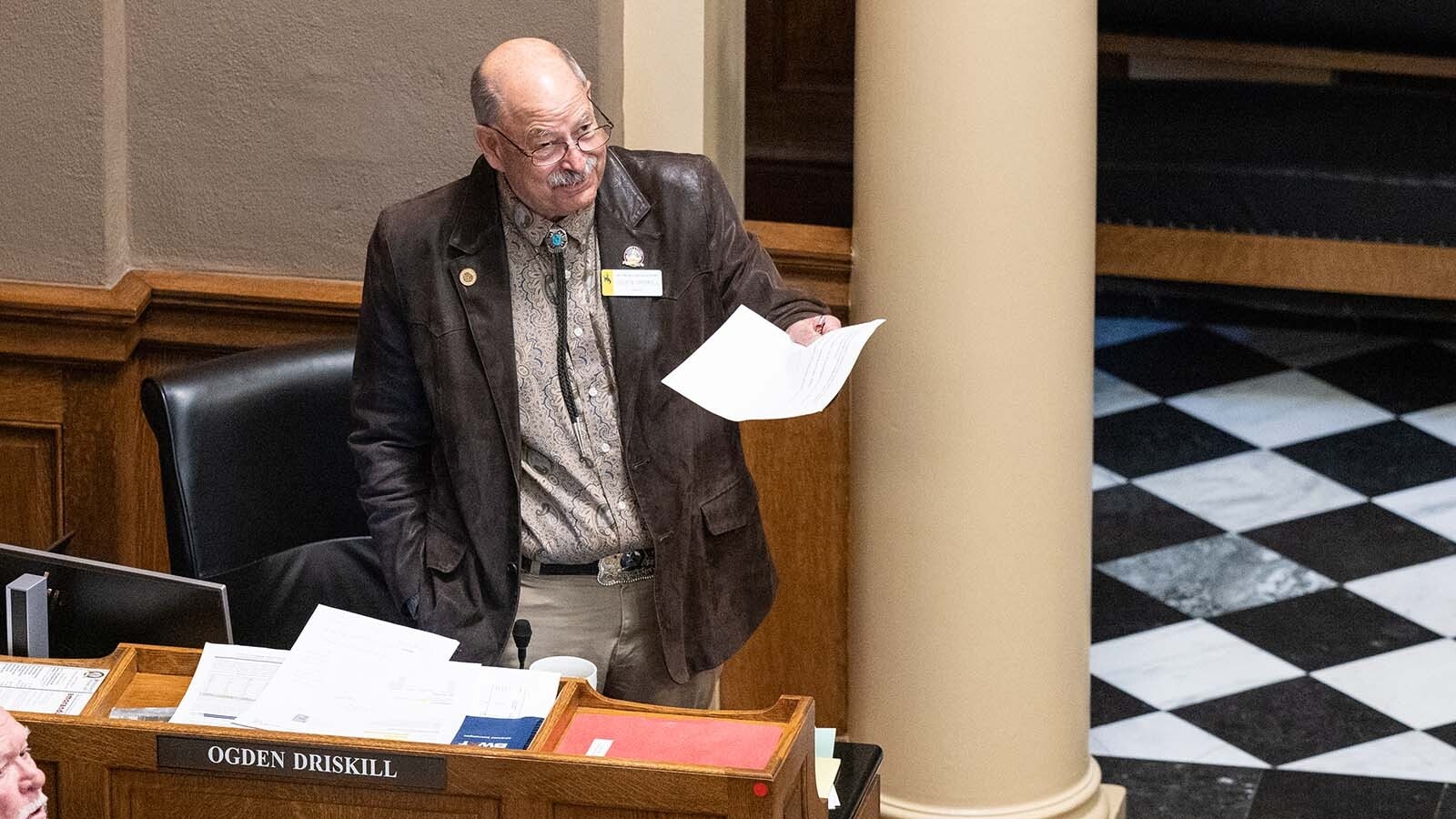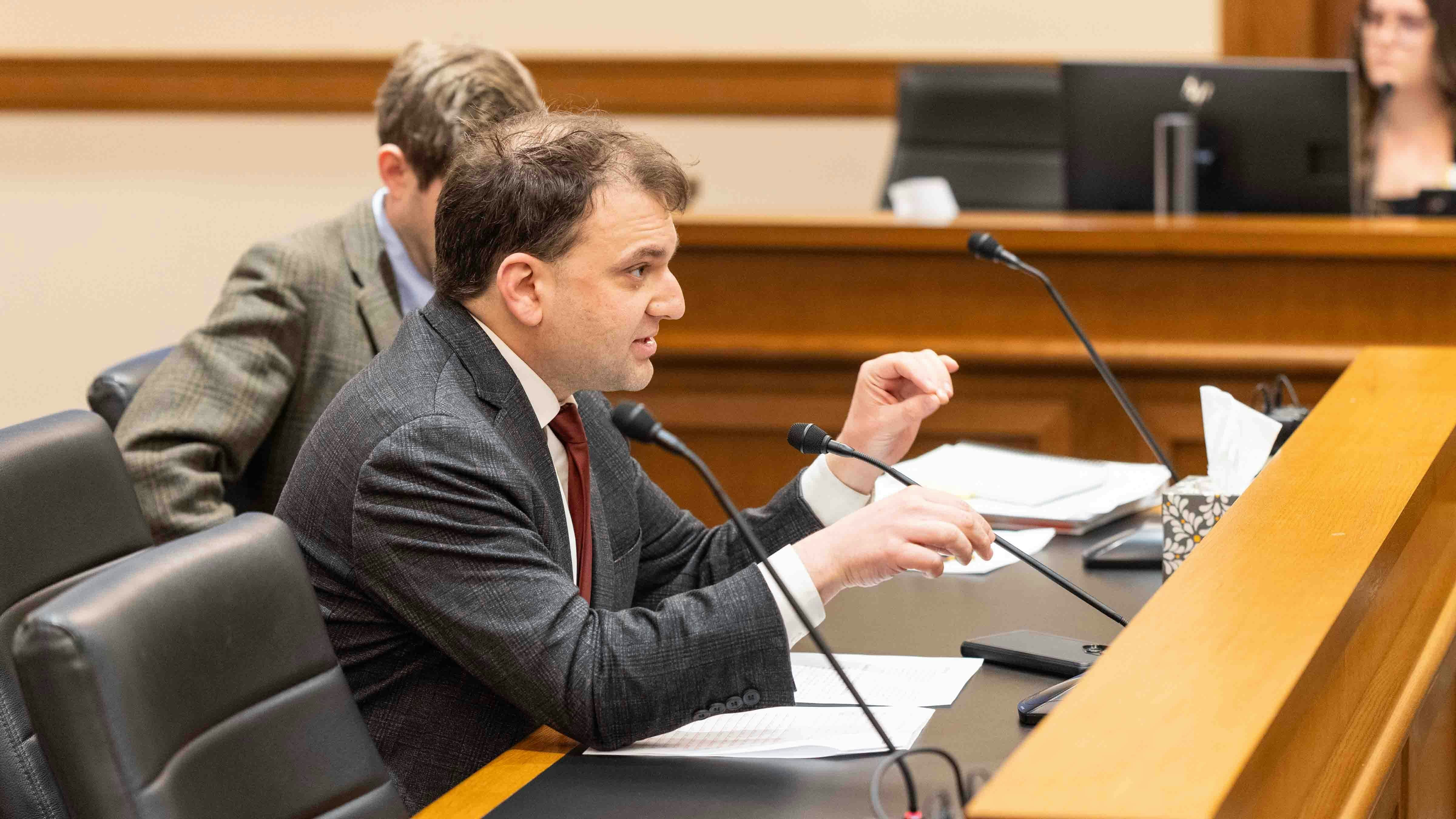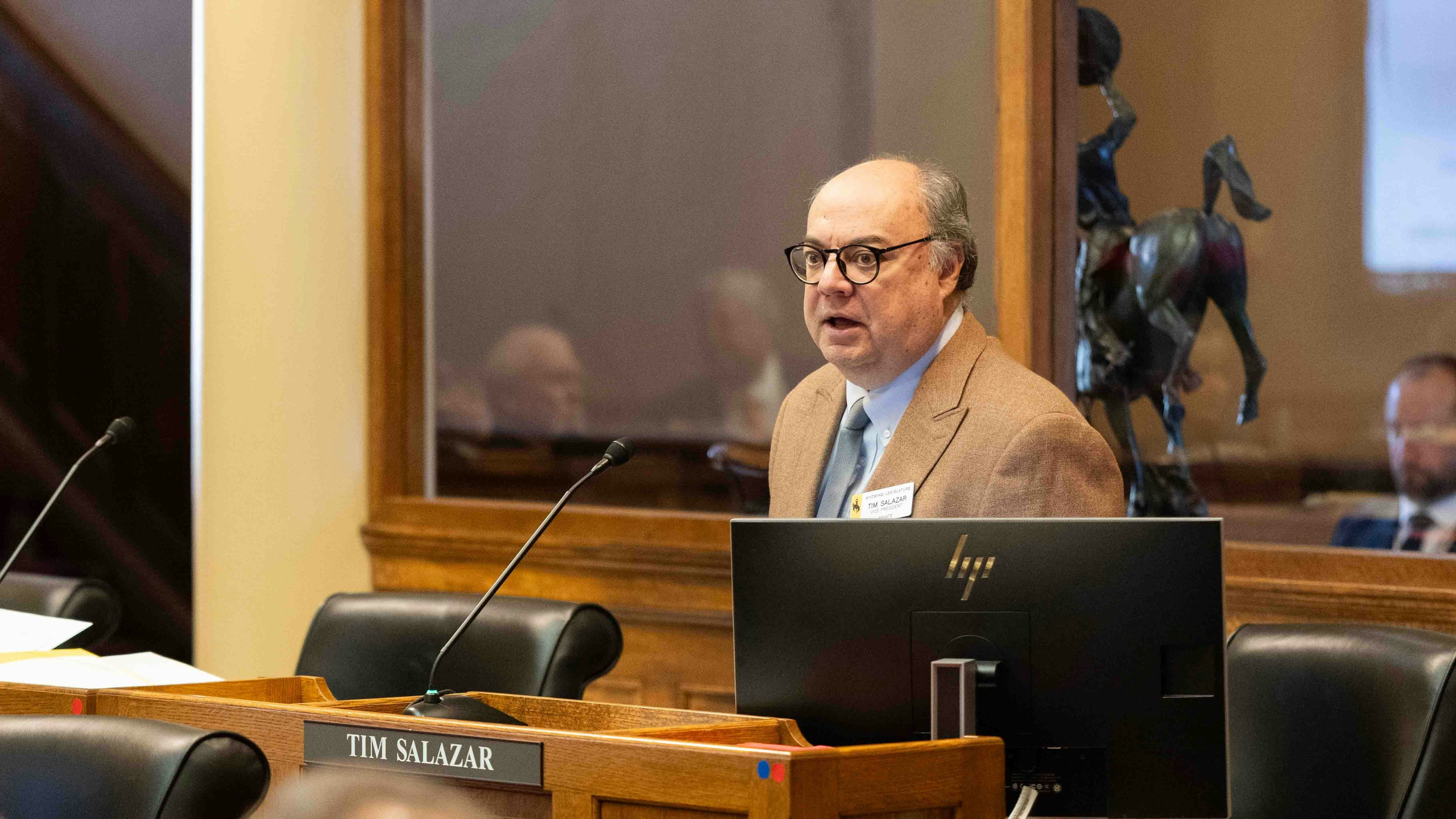School choice advocates are rejoicing at the passage of a charter-school friendly law change that has passed the Wyoming Legislature and is now waiting for the governor’s signature.
As long as Gov. Mark Gordon doesn’t veto it, Senate File 174 will create an eight-person appointed board that exists solely to review, authorize and oversee charter schools, which will likely make it easier for those schools to get approval.
“I’m absolutely ecstatic about it,” said Rep. Jared Olsen, R-Cheyenne, the bill’s sponsor and a founding member of a newly approved charter school, Cheyenne Classical Academy.
Gordon has not yet decided what to do with the bill, his spokesman Michael Pearlman told Cowboy State Daily in a Thursday text message.
“The Governor is still reviewing this bill and considering it carefully, as he does with all bills that reach his desk,” said Pearlman.
Gordon has until March 18 to act. If he doesn’t sign or veto SF 174, it will automatically become law.

Only The Beginning
Wyoming charter schools for years had to go to local school boards for authorization to operate, which school-choice proponents say disadvantages charter schools because preexisting public schools often see them as a funding threat.
Charter schools are free and publicly funded, but can have different curricula than public schools, which gives families an extra education option for their kids.
Wyoming in 2022 launched a pilot program allowing the state’s top five elected officials to approve up to three new charter schools, which they did. The three new schools include one in Cheyenne and one in Casper that both will use a Hillsdale College charter curriculum, and another in Chugwater that will use project- and place-based education, or more hands-on learning.
This is only the beginning, said Olsen.
“The authorizer can be the biggest impediment to opening a new school, so I think just having an alternate route for charter schools is going to be instrumental to the future of school choice in Wyoming.”
‘Nothing Could Be Further From The Truth’
The Wyoming Education Association for educators in existing K-12 schools strongly opposed SF 174.
In a Feb. 22 House Education Committee meeting, the Wyoming Education Association, which represents nearly 6,000 educators, testified against the bill, saying it’s not the miracle fix school-choice proponents say it is.
Tate Mullen, government relations director for the association, said the K-12 establishment is not against school choice and competition.
“Nothing could be further from the truth,” said Mullen.
He said Wyoming’s numerous rural communities make it difficult for charter schools to drive educating costs down through competition because there aren’t enough students to justify adding new facilities and administrations to accommodate the charter startups. And he fears those rising costs could hurt education.
Mullen also noted that the state’s public-school students are above average on national testing scores.
He reminded lawmakers that the association now is suing Wyoming on allegations that the state hasn’t upheld its constitutional duty to provide superior education funding.
“It is irresponsible policy to escalate the cost of education without meeting these prior obligations,” said Mullen, adding that current charter schools have consumed about $14 million in additional education costs.
If there is a lack of educational opportunities for kids, Mullen said, it is “directly correlated to the underfunding of education,” and Wyoming should adopt a cost-based education funding model.
Other charter-school expansion opponents said charter schools only take the best kids and reject special-needs students, leaving traditional public schools to face disproportionate challenges.

Black Helicopters
Senate President Ogden Driskill, R-Devils Tower, derided some of Mullen’s arguments as unfair hypotheticals, or “black helicopters.”
“Looking at the negative testimony out of the districts speaks volumes,” said Driskill. “You hear, ‘Oh my God, it’s going to cost huge amounts of money, (but) if you give us a lot more money we can do a better job.’”
Driskill said the state already has poured money into its education establishment.
“We have the newest school fleet in Wyoming, we have some of the highest-paid teachers, some of the highest education costs,” he said. “Money is not what educates students. It’s a system and the way you run your schools.”
Driskill also said existing schools may be threatened by charter schools because the new charters are “conservative” and fill a need that Wyoming parents have identified.
“Some of us in Wyoming, one of the most conservative states in the nation, would like our kids to receive a traditional conservative education,” he said.
‘I Would Like An Apology’
Both Reps. Karlee Provenza, D-Laramie, and Ryan Berger, R-Evanston, took offense to Driskill’s statement that educators’ concerns are “black helicopters.”
Berger demanded an apology.
“For the first time here in this session it made me not want to be a teacher, and I don’t like that,” he said, adding that his wife and daughter also are teachers. “I didn’t appreciate that comment and I would like an apology.”
But committee chair Rep. David Northrup, R-Powell, diverted the discussion by asking the committee for its vote on the bill.
The committee voted 7-2 in favor of the bill with Provenza and Rep. Jerry Obermueller, R-Casper, opposed.





